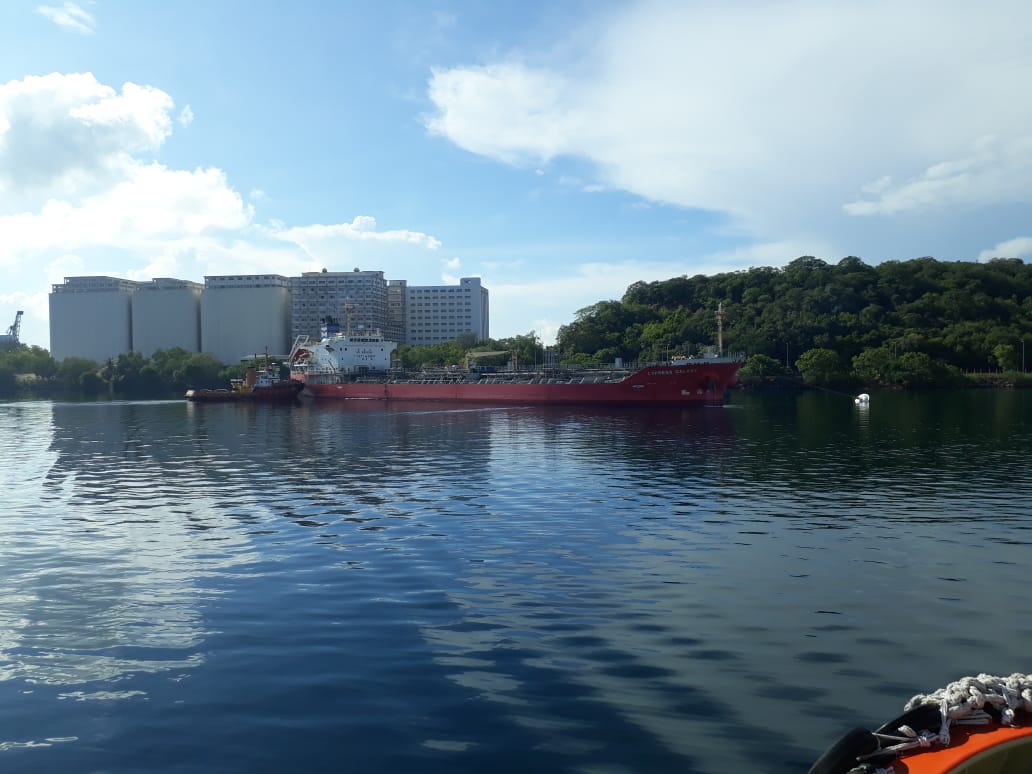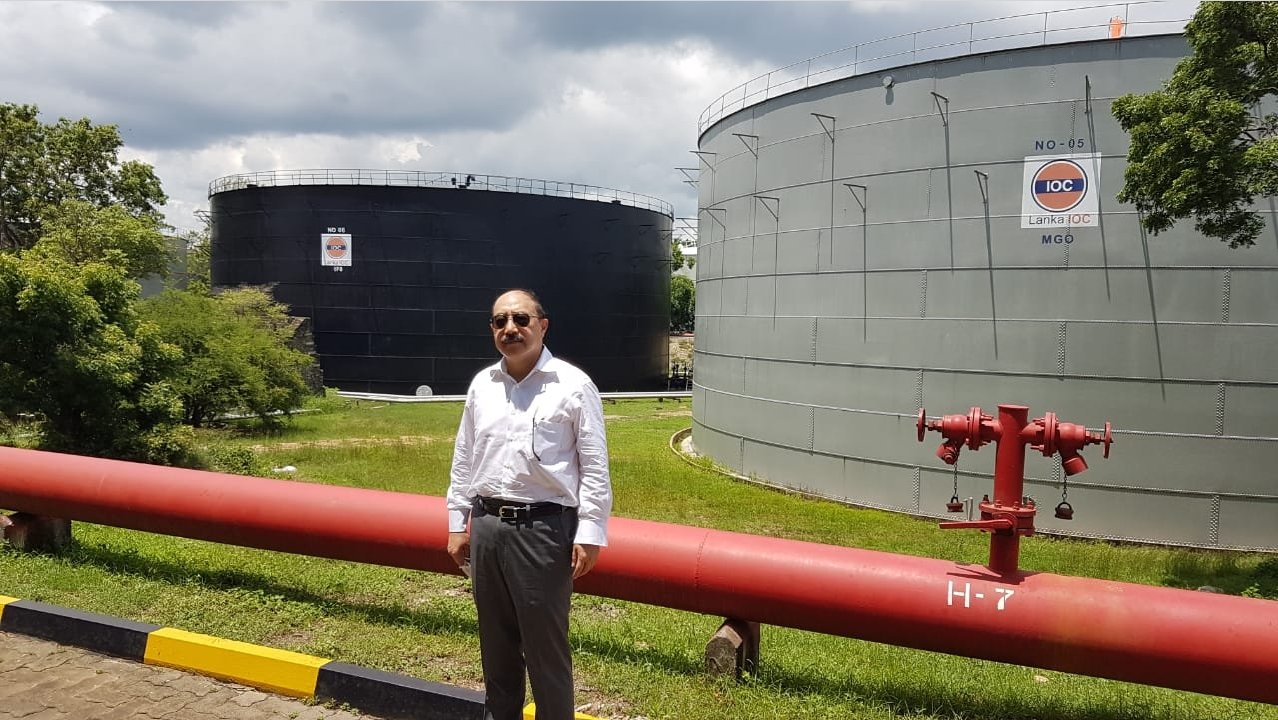
On Tuesday the chairman of Sri Lanka’s Port Authority, Prasantha Jayamanna, declared that they would be issuing Expressions of Interest (EOIs) to develop Trincomalee Port however poor governance from Colombo has left investors wary.
“We will be asking not only from one party, but whoever the industrialists are who want to come and utilise the port premises,” Jayamanna told representatives of shipping companies and port workers’ unions.
His statement comes amidst Sri Lanka’s worst financial crisis in decades with the country officially defaulting on its debts this month. Sri Lanka is the first Asia-Pacific country in decades to default on foreign debt. Citizens have been subject to record levels of inflation and simple shortages in basic goods such as food, fuel and medicine.
During his meeting, Jayamanna attempted to allay concerns over the slowing of operations at Colombo port due to the country’s fuel crisis. He maintained that the EOIs would be issued in March but had been delayed due to the current crisis engulfing the island.
Development plans for Trincomalee would see the development of the port for non-containerised cargo traffic, such as cement, coal or other industrial raw material. Currently, Trincomalee has a number of dedicated port terminals including the Tokyo Cement facility, and grain facility for a flour factory, and a tea terminal. There is also a jetty for bulk cargo such as coal, gypsum and cement.
Reports indicate that the port is ideally placed to service the projected growth of maritime cargo trade in the region, especially with regard to the development of ports in Bangladesh and Myanmar and on India’s eastern seaboard.
The development of Trincomalee port will be of key strategic interest to several countries including, India, China, the US and Japan. “It offered not just one of Asia’s finest natural harbours” but also a “way to balance China’s influence in the country, and dominate the maritime trade routes in the region”, writes Nirupama Subramanian. Yet Colombo’s misgovernance has left investors wary.
A pivot to China
![]()
Coming to power in November 2019, Sri Lanka’s President, Gotabaya Rajapaksa, embarked on a mission to realign Sri Lanka’s foreign policy closer to China. This involved unilaterally cancelling agreements with India and Japan whilst securing new projects with China.
In power, Rajapaksa would cancel the $1.5 billion Japanese-funded light rail project for Colombo and the East Container Terminal (ECT) project which Japan, India and Sri Lanka agreed upon worth an estimated $700 - $800 million dollars. Both projects were agreed to in May 2019.
Simultaneously the regime strengthened ties with China, with Prime Minister Mahinda Rajapaksa calling for the controversial Chinese-led Colombo Port City project to be accelerated in September 2020. President Rajapaksa would lavish praise on China, praising Chinese President Xi Jinping’s “strong leadership” and telling him that he wished to learn from his governance style.
China would return the favour not just financially but also by agreeing to defend Sri Lanka at “international fora including United Nations Human Rights Council” where the country stands accused of numerous war crimes.
However, relations with the US, India and Japan were significantly hampered. Soon after Sri Lanka’s withdrawal from the ECT project, India rejected discussions on the West Container Terminal (WCT).
Rohan Masakorala, maritime shipping expert and CEO of the Shippers’ Academy Colombo decried the government’s decision as “purely political”.
“It also gives potential investors here mixed signals, because the government’s position was volatile and not direction driven,” he told the Hindu.
US Ambassador to Sri Lanka, Alaina B. Teplitz, slammed the Port City project warning that it allowed openings for “corrupt influences or potential of illicit financing, money laundering”.
The US State Department would slam Sri Lanka’s import region as “one of the most complex and protectionist in the world”. They would further warn investors that the island is “a challenging place to do business, with high transaction costs aggravated by an unpredictable economic policy environment, inefficient delivery of government services, and opaque government procurement practices.”
The report further raised “concerns over the potential for contract repudiation, cronyism, and de facto or de jure expropriation”.
Chinese support falters
Relations with China however have since sullied following the Rajapaksa’s imposed ban on chemical fertilisers and the country’s refusal to pay for an import of 20,000 tonnes of fertiliser. Sri Lanka refused to claim the fertiliser was substandard leading to a lawsuit and the blacklist by China of the “People's Bank”, the second-largest state-owned commercial bank in Sri Lanka.
The Chinese fertiliser company Seawin Biotech Group would not only win the lawsuit, worth USD $6.7 million, but would also push for economic sanctions and trade restrictions with Sri Lanka. For many Chinese investors, the affair raised doubts over Sri Lanka’s credibility which remain present in China’s response to Sri Lanka’s economic crisis.
Whilst the country has agreed to donate 2,000 tonnes of rice, worth an estimated 2.5 million USD, it has yet to respond to requests for debt restructuring and Sri Lanka’s plea for $2.5 billion USD in financial aid.
Commenting on China’s perspective, Raffaello Pantucci, a senior fellow at the S. Rajaratnam School of International Studies at Nanyang Technological University, told Bloomberg news:
“Beijing has for the past couple of years been rethinking its external lending because their banks realised they were carrying a lot of debt with countries whose prospects of paying back were quite limited”.
In an interview with the Island, former and current Sri Lankan Prime Minister, Ranil Wickremasinghe, lamented his government’s poor foreign policy stating that Sri Lanka is not really friendly with any country.
Recovering frayed relations
Faced with a dire economic crisis, Sri Lanka’s Finance Minister reportedly “went to beg from India” and met with Indian government officials in December 2021. India would condition support on the expansion of several projects in the Tamil homeland which included an agreement to develop the Trincomalee Tank Farm – a reversal from a previous Sri Lankan position.

India’s Foreign Secretary Harsh Vardhan Shringla visits the Trincomalee oil tanks in October 2021.
Last year, Sri Lanka reportedly scrapped a 2003 deal that saw 99 tanks in the eastern city leased out to the Indian Oil Corporation (IOC). "I am proud to announce that the oil tanks the use of which had been denied to us since 2003 will be soon ours," claimed Sri Lankan Energy Minister Udaya Gammanpila. However, the new agreement with India stipulates the “early modernization of Trincomalee Tank Farm” – a project that New Delhi has been pursuing for several years.
Sri Lanka would also seek support from Tokyo urging for financial assistance and asserting that “Japan remains one of Sri Lanka’s key development partners”. President Rajapaksa would even go so far as to claim that he wants Sri Lankans to learn Japanese to fill job vacancies in Japan.
Chilamkuri Raja Mohan, director of the Institute of South Asian Studies, described this repositioning as a “major course” correction.
“Sri Lanka’s strategic pendulum is shifting away from China towards India and the United States,” Rohan Gunaratna, director-general of the Sri Lankan Institute of National Security Studies, a government-aligned think tank, told a symposium.
However, in responding to Sri Lanka’s crisis there is some hesitation. Japan has agreed to provide USD 1.5 million through a World Food Programme (WFP) program to Sri Lanka for essential food rations, however, the country remains silent on Sri Lanka’s plea for a $ 3.5 bn loan.
Read more here.
